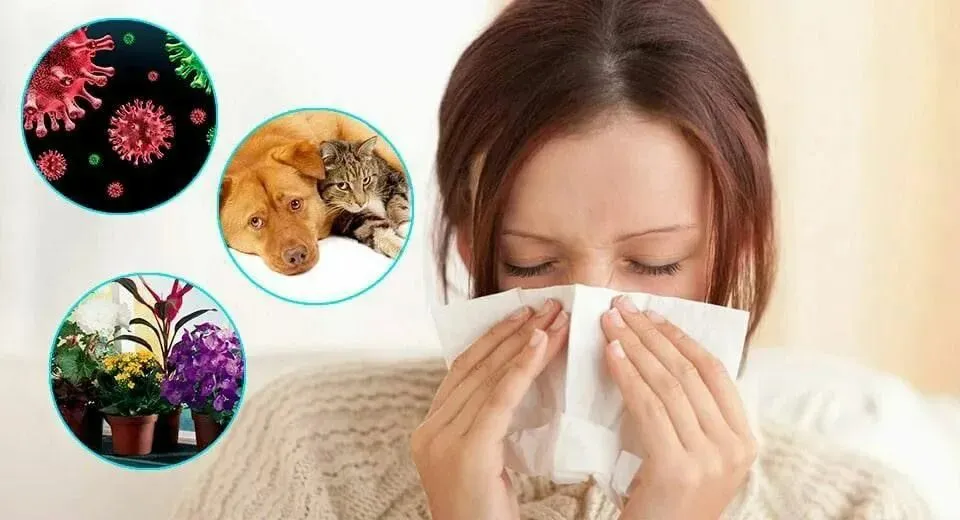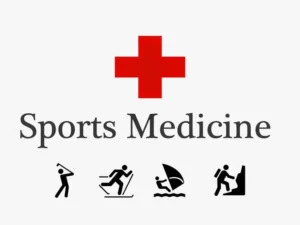How to Manage Seasonal Allergies in 2025?

Seasonal allergies affect millions of people worldwide, causing discomfort and disrupting daily life. As we approach 2025, new strategies and treatments are emerging to help manage these pesky symptoms more effectively. Understanding and implementing these techniques can significantly improve quality of life for allergy sufferers.
Advances in medical research have led to innovative approaches for tackling common allergy symptoms like congestion, sneezing, and itchy eyes. These methods focus on strengthening the immune system and reducing exposure to allergens. FirstPointMD, a leading healthcare provider, offers comprehensive allergy management services to help patients find relief.
Embracing a proactive approach to allergy management is key. This includes staying informed about pollen counts, using air purifiers, and exploring new medications or immunotherapy options. With the right tools and knowledge, individuals can minimize the impact of seasonal allergies and enjoy outdoor activities year-round.
Understanding Seasonal Allergies
Seasonal allergies affect millions of people worldwide, causing discomfort and impacting daily life. These allergic reactions occur when the immune system overreacts to harmless substances in the environment.
Allergy Triggers and Symptoms
Pollen from trees, grasses, and weeds is a primary trigger for seasonal allergies. When inhaled, these microscopic particles can cause an immune response in sensitive individuals. Common symptoms include sneezing, runny nose, itchy eyes, and congestion.
Other allergens like dust mites, mold spores, and pet dander can exacerbate symptoms year-round. Exposure to these triggers stimulates the release of histamine, leading to allergic reactions.
Pollen counts vary throughout the year, with peak seasons differing for various plants. Tree pollen often surges in spring, while grass pollen dominates in summer. Weed pollen, particularly ragweed, peaks in late summer and fall.
Recognizing Common Allergens
Identifying specific allergens is crucial for effective management. Tree pollen from oak, birch, and cedar trees frequently triggers allergic rhinitis, also known as hay fever. Grass pollen from types like ryegrass and timothy grass affects many during warmer months.
Ragweed pollen is a significant fall allergen, causing symptoms in up to 75% of people with pollen allergies. Indoor allergens like dust mites and mold spores can trigger reactions year-round, especially in humid environments.
Pet dander, composed of tiny skin flakes, can also cause allergic responses. Cats and dogs are common sources, but any furry animal can produce allergens. Recognizing these triggers helps in developing targeted prevention strategies.
FirstPointMD offers comprehensive allergy testing and treatment options for patients struggling with seasonal allergies. Their experienced medical professionals can help identify specific allergens and create personalized management plans.
Diagnosis and Professional Care
Proper diagnosis and expert care are crucial for effectively managing seasonal allergies. Professional medical guidance can provide personalized treatment plans and access to advanced therapies.
Consulting with an Allergist
An allergist specializes in diagnosing and treating allergic conditions. These experts can identify specific triggers and develop tailored management strategies. Allergists at FirstPointMD offer comprehensive evaluations to assess symptoms and medical history.
They may recommend lifestyle modifications or prescribe medications to alleviate symptoms. Regular follow-ups ensure treatment effectiveness and allow for adjustments as needed.
Allergy Testing Methods
Accurate diagnosis relies on various testing methods. Skin prick tests involve applying small amounts of allergens to the skin and observing reactions. Blood tests measure specific antibodies in the bloodstream.
Intradermal tests and patch tests provide additional insights for certain allergies. FirstPointMD utilizes state-of-the-art testing equipment for precise results.
These tests help identify triggers like pollen, dust mites, or pet dander. Results guide treatment plans and allergen avoidance strategies.
Advanced Treatments for Allergies
Immunotherapy is a long-term treatment option for severe allergies. It involves exposing patients to gradually increasing doses of allergens to build tolerance. Allergy shots are a common form of immunotherapy, administered in controlled medical settings.
Sublingual immunotherapy offers an alternative, using drops or tablets placed under the tongue. FirstPointMD provides both options, tailoring treatment to individual needs.
Newer biological therapies target specific immune pathways involved in allergic reactions. These treatments can be particularly effective for severe cases unresponsive to conventional methods.
Home and Lifestyle Management
Managing seasonal allergies effectively involves creating a comfortable home environment and adopting self-care practices. These strategies can significantly reduce exposure to allergens and alleviate symptoms.
Creating an Allergy-Proof Environment
Install high-efficiency particulate air (HEPA) filters in your home to trap airborne allergens. These filters are particularly effective at removing pollen, dust mites, and pet dander. Keep windows closed during high pollen days to prevent outdoor allergens from entering.
Maintain indoor humidity levels between 30-50% to discourage dust mite and mold growth. Use a dehumidifier in damp areas like basements. Vacuum carpets and upholstery regularly with a HEPA-equipped vacuum cleaner.
Wash bedding weekly in hot water to eliminate dust mites. Consider using allergen-proof covers for mattresses and pillows. Remove shoes at the door to avoid tracking in outdoor allergens.
Self-Care Strategies
Stay informed about local pollen counts and plan outdoor activities accordingly. Wear sunglasses and a wide-brimmed hat when outside to protect your eyes and face from airborne allergens.
Shower and change clothes after spending time outdoors to remove pollen from your skin and hair. Use a saline nasal rinse to flush out allergens from your nasal passages.
Practice stress-reduction techniques like meditation or yoga, as stress can exacerbate allergy symptoms. Regular exercise can boost your immune system and help manage allergy symptoms.
For professional allergy management, FirstPointMD offers comprehensive care. Their experienced healthcare providers can develop personalized treatment plans to address seasonal allergies effectively.
Medications and Remedies
Effective management of seasonal allergies in 2025 involves a range of medication options and remedies. These include both over-the-counter solutions and prescription treatments tailored to individual needs.
Over-the-Counter Options
Antihistamines remain a primary defense against seasonal allergies. Newer formulations offer relief without causing significant drowsiness. Popular options include cetirizine, loratadine, and fexofenadine. Decongestants help alleviate nasal congestion. They are available as oral tablets or nasal sprays. However, prolonged use of nasal decongestants may lead to rebound congestion.
Nasal corticosteroid sprays reduce inflammation in the nasal passages. These are highly effective for many allergy sufferers when used consistently. Combination products containing both antihistamines and decongestants provide multi-symptom relief. They are convenient but may not be suitable for everyone.
Prescription Treatments
For severe allergies, prescription medications offer stronger relief. Prescription antihistamines and nasal corticosteroids are available in higher strengths than over-the-counter versions. Leukotriene modifiers, such as montelukast, help control allergy symptoms and may also benefit those with asthma. Immunotherapy, including allergy shots or sublingual tablets, can provide long-term relief by gradually desensitizing the immune system to specific allergens.
FirstPointMD offers telemedicine consultations for allergy management. Their physicians can prescribe appropriate medications and develop personalized treatment plans. For patients with allergic asthma, inhaled corticosteroids and bronchodilators may be necessary to prevent and manage asthma attacks triggered by seasonal allergies.
Book Appointment at FirstPointMD
To manage seasonal allergies effectively in 2025, consider booking an appointment at FirstPointMD. This medical facility offers expert care for allergy sufferers. Patients can schedule a visit by calling (718) 608-6182 or going to their office at 271 Jericho Turnpike, Suite 1002, Floral Park, NY. The clinic’s website, https:/, provides additional information about their services and allows for easy online appointment scheduling.
Originally posted on July 31, 2024 @ 12:32 pm






